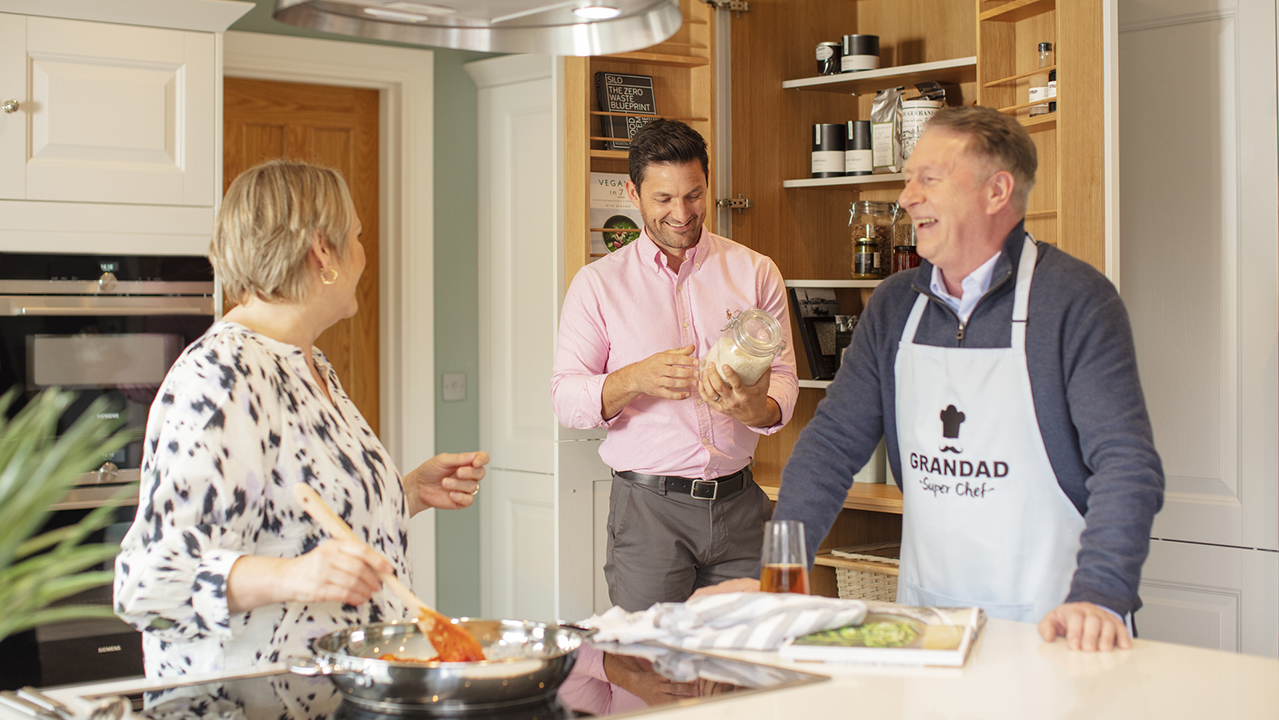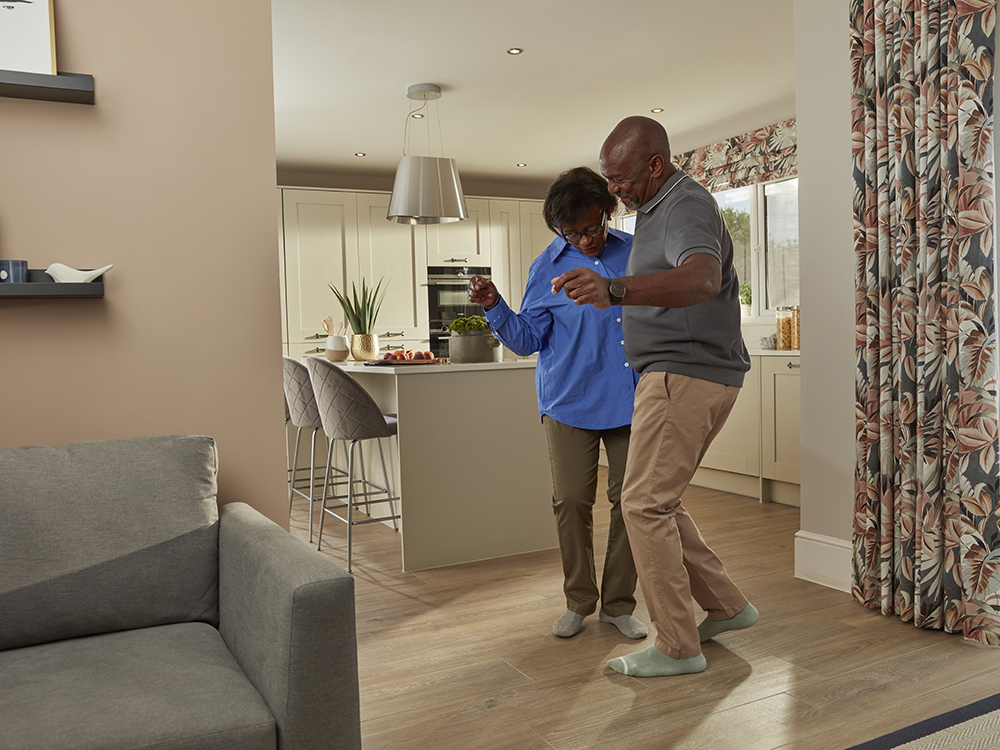Because a home isn’t a regular purchase, we’ve put together a handy guide covering everything you need to know including how to calculate mortgage repayments and the impact of mortgage interest rates, with expert advice from new homes mortgage specialist Andy Mannion, from RSC New Homes.
How do mortgages work?
- A mortgage is a secured loan used to buy a property, usually from a bank or building society.
- Lenders assess how much people can borrow based on your individual affordability assessment. “Mortgage lending can vary vastly depending on the area you live in. It’s not just a case of lenders looking at income and outgoings, they also look at affordability using cost of living data for different geographic areas,” Andy explained. “For example, someone earning £50,000 a year in the north of England could be offered one level of loan and someone in London with the same income could be offered a lower amount because of the higher cost of living in the capital. Mortgage lenders will also look at things like how many children you have when assessing mortgage affordability.”
- A deposit is usually required to secure a mortgage. This is typically at least 5% but it can vary. Some lenders offer no deposit mortgages. The size of your deposit is taken into account in how mortgages are calculated. “If you can put down a larger deposit, you’ll have paid off more of your house from the start,” Andy added. “This can increase the choice of mortgage products available to you and give you access to better mortgage interest rates, helping reduce the interest you pay overall.”
- First time buyers may be wondering which banks offer guarantor mortgages, the good news is there are lenders that will allow parents to be part of a mortgage application, but the property is legally owned by their children. “Having the support of the ‘bank of mum and dad’ in the background can help with affordability,” Andy said.
- Traditionally the average mortgage lasted 25 years, but 40-year loans are now increasingly common. “Taking out a mortgage over a longer period can help with affordability of the monthly repayments,” Andy explained.
- The monthly repayments made on a mortgage include interest on the amount borrowed. Read on to discover the effect of interest rates on mortgages in the UK.

What are interest rates?
Interest rates determine the cost of borrowing or the rewards of saving. For borrowers, including homeowners with a mortgage, the interest rate is the amount you are charged for borrowing money. This is shown as a percentage of the total amount of the loan. Savers, on the other hand, will be credited with a percentage of their balance.
Interest rates are a key component in how mortgages are calculated.
If you’re thinking of buying a home, you may be asking yourself is the mortgage rate going down? The Bank of England announces its interest rate decision usually around every six weeks. Individual lenders will have their own criteria they will use to determine who they will give a mortgage offer to.
What is the bank base rate and how does it affect your mortgage?
Sometimes called the Bank of England base rate, the bank rate determines the level of interest that the Bank of England pays to or charges other banks. It also influences what other banks and building societies charge borrowers or pay to savers.
The Bank of England’s Monetary Policy Committee (MPC) decides on the interest rate, taking into account inflation, economic growth and employment levels.
How much will a mortgage cost?
Before you start your search for a new home, it’s good to have an idea of how much you can afford to borrow. If you’re wondering how much would my mortgage be, we have a handy mortgage calculator available on our website. It can be used to help calculate mortgage repayments on the home you’re considering buying.
Use the search bar on our website to find a home in your preferred location. Once you’ve clicked through to your chosen development, scroll down and you’ll see our mortgage calculator.
Simply use the slider to set:
- The property price
- Deposit amount – based on your savings or equity in an existing property.
- Repayment term – this could be 25 to 40 years
- Interest rate
The calculator will then work out the hypothetical monthly mortgage repayments. We can also put you in touch with new homes mortgage specialists, like Andy, who can offer expert advice. What does a change in the interest rate mean for my mortgage? The type of mortgage you have will determine what effect, if any, a change in the interest rate will have on your monthly repayments.
- Fixed rate mortgage. “This is the most commonly used type of mortgage,” Andy said. “With a fixed term mortgage, the interest rate is usually locked in for two or five years, but some banks offer up to 10 year fixed rates, so your monthly repayments will stay the same over that period.”
- Tracker mortgage. These can rise and fall in line with other interest rates –normally the Bank of England’s base rate, plus a few percent. “Some people are on a tracker rate because they expect the base rate will come down,” Andy added. “This would then mean they would then pay less interest and reduce their monthly mortgage repayments.”
- Variable rate mortgage. These can change at any time.
What is mortgage porting?
If you already have an mortgage, you may be able to take your current mortgage with you when you move home. This is known as mortgage porting. “A lot of people we speak to aren’t aware of portable mortgages. They could be paying 2% interest and be two years into a five-year fixed deal and think they can’t consider moving yet, but nearly all mortgages arranged in the last 15 years are portable,” Andy explained. “Mortgage porting is a really good option for people who are using Help to Sell or Part Exchange.”
- If you’re porting your mortgage, you’ll be limited to your current lender. You will need to apply to them to port your mortgage from your existing property to a new home.
- You may be able to increase the loan or take out a second one to cover any additional costs.
- Unlike arranging a new mortgage, there are no fees for porting an existing mortgage from one property to another.
- We can put you in touch with new homes mortgage specialists who’ll be able to guide your options.
What is a green mortgage?
The average UK property has an Energy Performance Certificate rating of D, but our homes are much more efficient, achieving a B rating – some an A, which is the highest rating available. The efficiency of our homes makes them eligible for green mortgages, which tend to offer more favourable interest rates, helping lower household bills further.
“Buy an energy efficient new home with a green mortgage and you may be able to borrow an extra £40,000,” Andy explained. “Lenders will take into account that your energy bills are likely to be lower than in an older proper and so they will consider lending you more money.”
Discover more about what makes our homes so efficient here or read our tips for reducing energy bills.

How to secure a mortgage
- Save for a deposit or use the equity in your current home.
- Find a mortgage. We can put you in touch with new homes mortgage specialists with access to the entire mortgage market who’ll be able to help you decide the best finance route to your new home. “As independent new homes mortgage specialists we don’t simply provide a mortgage product but can offer advice too,” Andy said. “For example, someone may think they want a 25-year mortgage when a longer mortgage could mean lower monthly repayments.” We also have a mortgage calculator available on the development pages of our website to help you assess the cost of a new home.
- Obtain an agreement in principle from your chosen lender. This documents how much they will lend you based on the information you have provided.
- Reserve your new home – speak to our sales team about the home you want to reserve.
- Have your documents ready to apply for your mortgage. You’ll need to provide evidence of your income and outgoings, usually in the form of payslips, bank statements and any other earnings, plus proof of identity and address such as passport, driving licence and utility bills. If you are self-employed you will need to provide tax returns and accounts. Your lender will carry out a mortgage valuation survey before approving your application. Find out more about the buying process.
To prepare yourself for moving, discover the 10 signs it’s time to move.



